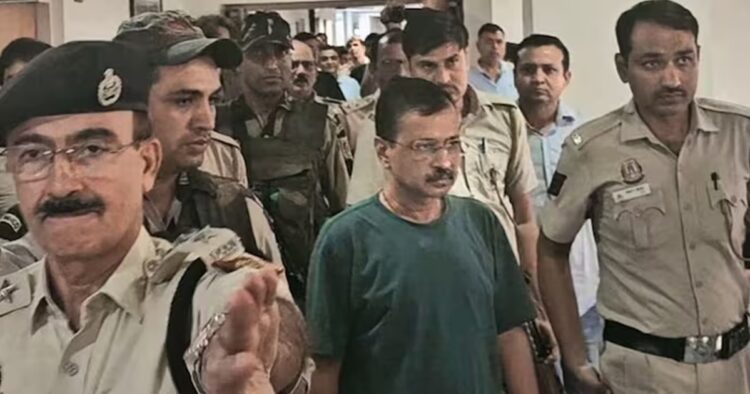The Supreme Court of India has refused to grant interim bail to Delhi Chief Minister Arvind Kejriwal in a corruption case linked to the controversial Delhi Liquor Policy. The case has been a major point of contention, with the Aam Aadmi Party (AAP) leader facing serious allegations of corruption and misconduct. The court has sought a reply from the Central Bureau of Investigation (CBI) on Mr. Kejriwal’s bail plea and has scheduled the next hearing for August 23.
Senior Advocate Abhishek Singhvi, representing Mr. Kejriwal, argued before the bench comprising Justice Surya Kant and Justice Ujjal Bhuyan. He described the situation as “strange,” highlighting that Mr. Kejriwal had previously been granted interim bail in a Prevention of Money Laundering Act (PMLA) case in May and again in July by the Supreme Court.
Additionally, a lower court had granted him bail in a CBI case. Mr. Singhvi labeled Mr. Kejriwal’s imprisonment as an “insurance arrest,” implying that it was unjust and unnecessary.
Despite these arguments, the Supreme Court was firm in its decision not to grant interim relief to the Delhi Chief Minister. The bench clearly stated, “Don’t say interim bail, we will not give interim bail,” indicating the seriousness with which the court views the allegations against Mr. Kejriwal.
The corruption case against Arvind Kejriwal stems from the Delhi Liquor Policy, which was introduced in November 2021 but was withdrawn less than a year later, in September 2022, following allegations of corruption. Delhi Lieutenant Governor VK Saxena ordered a CBI investigation into the policy, leading to the current legal battle. The CBI and the Enforcement Directorate (ED) have accused Mr. Kejriwal and other AAP leaders of committing irregularities and granting undue favors to liquor license holders under the new policy.
The arrest of Arvind Kejriwal by the CBI, nearly two years after the case was registered, has been a major point of controversy. While his legal team has argued that the arrest is baseless and motivated by malice, the Delhi High Court previously upheld the arrest, dismissing claims of malice and supporting the CBI’s actions.
The High Court also pointed out how Mr. Kejriwal could potentially influence witnesses, making his detention necessary.
Arvind Kejriwal’s political career has been marred by several controversies. His image as an anti-corruption crusader has taken a significant hit due to the ongoing corruption cases. Besides the liquor policy case, Kejriwal’s close associates, including Manish Sisodia and Sanjay Singh, have also been arrested on corruption charges. While these leaders are currently out on bail, the allegations have severely damaged the AAP’s credibility.

















Comments